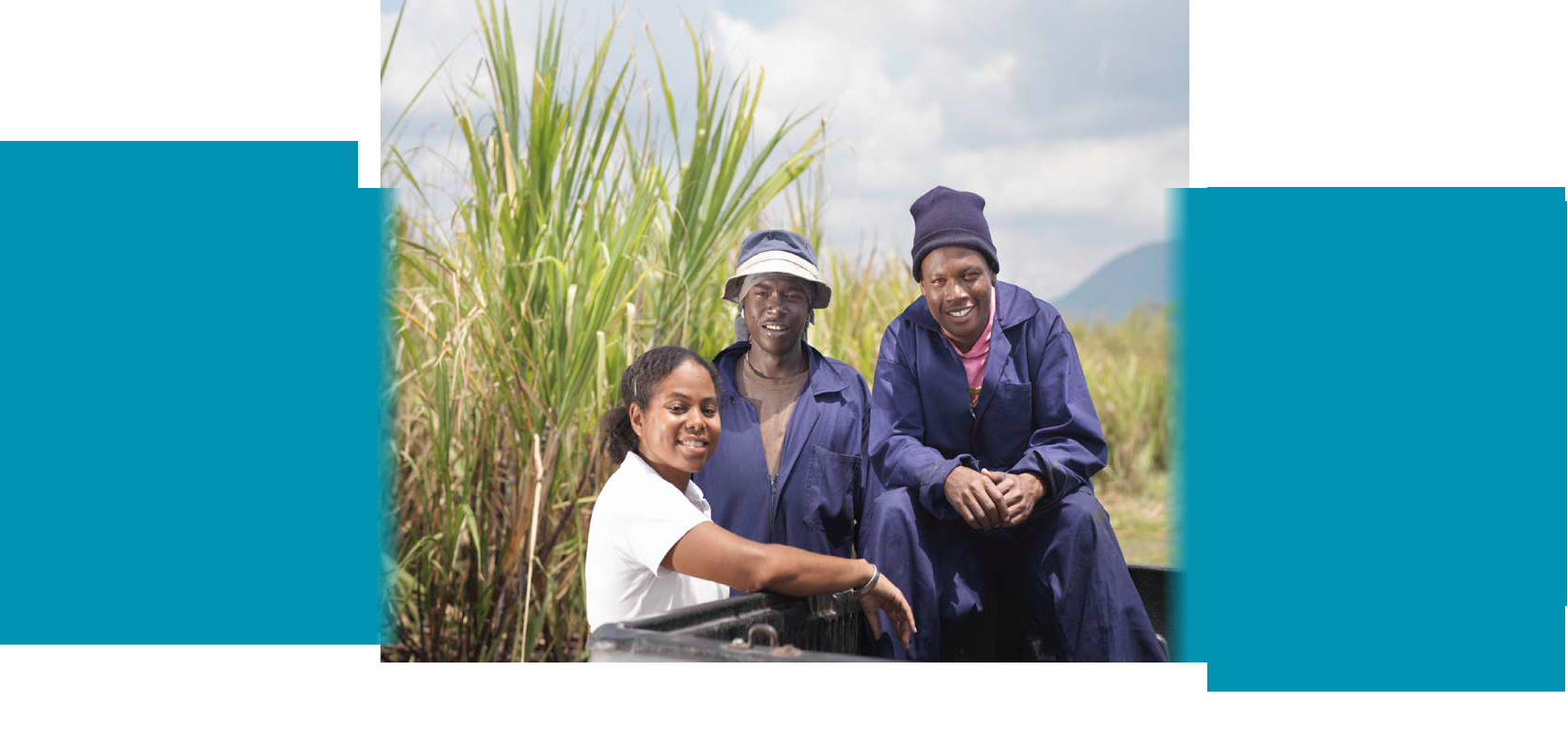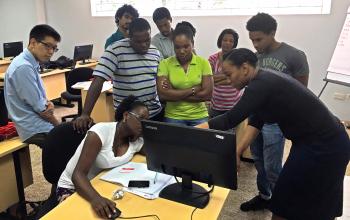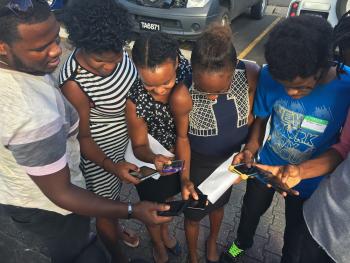
What's New
CFYR – Building Youth Advocates in the Eastern and Southern Caribbean
With evidence-based programming, everyone wins!
The Community, Family and Youth Resilience program (CFYR) in Eastern and Southern Caribbean is turning to local youth to collect valuable data about their communities while also empowering them with new skills.
Q&A: Public Health Model Brings New Tools for Violence Prevention in the Caribbean
Prime Implementer
Creative Associates International
Implementing Partners
Pan American Development Foundation
University of Southern California
YouthBuild International
Project Timeline
July 2016 - September 2020
Project Goal
The primary goal of the Community, Family, and Youth Resilience (CYFR) program supports family networks, communities, service providers and government agencies to implement successful approaches to reduce crime and violence and increase opportunities for youth in St. Lucia, St. Kitts and Nevis and Guyana.
Brief Background
In the Caribbean, many youths face the prospect of being economically and socially marginalized and are at risk for violence.
They grow up in a context of increasingly high levels of crime and violence, peak rates of unemployment and a lack of vocational, life skills training, and family support services. The Community, Family and Youth Resilience program, funded by the U.S. Agency for International Development, supports family networks, communities, service providers and government agencies to implement successful approaches to reduce crime and violence and increase opportunities for youth in St. Lucia, St. Kitts and Nevis and Guyana.
The program will use community crime and violence prevention plans that strengthen data-driven observatories to conduct hotspot crime and violence mapping, adapt a public health approach to reducing violence, connect the community to the police and other service providers to support at-risk youth, and build linkages with the private sector to support youth employment.
Overview of Activities
AN EVIDENCE-BASED APPROACH TO BUILD YOUTH RESILIENCE
Taking a public-health, evidenced-based approach, the program provides targeted intervention activities to reach youth across three risk-differentiated risk levels—including the general population of youth in crime-affected areas (primary), youth at high risk for violence (secondary) and youth in conflict with the law (tertiary). Youth will be matched with interventions based on their level of risk and these interventions will seek to increase their protective factors or “resilience.” Based on a Positive Youth Development approach, this continuum of services includes primary prevention services such as civic activities to build social and leadership skills, workshops to increase youth workforce readiness, community activities that promote positive youth-police contact and campaigns to challenge those gender norms which contribute to an environment that is permissive of violence. To support youth who are leaving the juvenile justice system and reduce their chances of recidivism, the program provides targeted support to strengthen successful reintegration of these youth into their communities.
STRENGTHENING FAMILIES AND COMMUNITIES
The program provides specialized secondary prevention services for families whose youth are empirically most vulnerable to becoming involved in crime and violence. A sustainable network of trained family counselors will work in close partnership with the families of high-risk youth to establish positive relations and behaviors to lower the youths’ risk factors. In addition to strengthening a comprehensive array of wraparound services for high-risk youth and their families, the program supports local youth- and family-focused initiatives through small grants that improve community safety and cohesion and expand opportunities for young people. The program’s place-based strategy concentrates complementary prevention activities in a set geographic area to boost overall community resilience and empower local stakeholders and government institutions to shape the next generation of youth and family interventions. This includes improved legal and policy frameworks to reduce risk factors for violence, stronger referral systems to support youth and families, smarter violence observatories that use modern data analytics, coordinated community councils and more.
Expected Results
- An estimated 650 youth most at risk for violence and their families will receive targeted counseling to lower risk factors.
- 800 youth will gain improved workforce readiness skills to boost livelihoods opportunities.
- The program will deliver an integrated program that provides family counseling; connects youth with positive role models; assists youth to develop new skills and become more employable; delivers recreational and cultural activities; and builds community resilience to confront insecurity.
- The program will support 15 communities in implementing holistic crime and violence prevention plans, reaching some 40,000 families.


